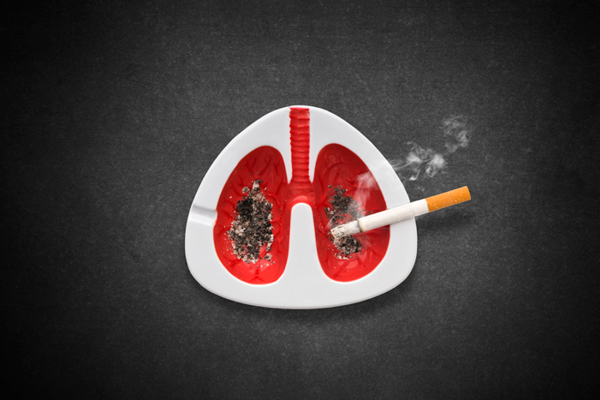How Do Cigarettes Cause Cancer?
You've probably heard about how smoking cigarettes is bad for your health as it can leave you at a higher risk of developing cancer. Aside from the approximate 85% of lung cancers that result from smoking, cigarette smoke is also responsible for many cancer cases in the head, throat, bladder, colon, and more.
But how does smoking cause cancer exactly? Scientists discovered the link between smoking and cancer back in the 1940s, but it's only been in more recent history that experts have understood the reason behind this cause and effect.
How is Smoking Linked To Cancer?
There are thousands of dangerous chemicals inside cigarette smoke that can harm your health. Among those, hundreds of them are toxins, with more than 65 of them being discovered to cause cancer directly. With the intense and repeated exposure to these chemicals, it isn't surprising that smoking is determined as the main cause for many cancer diagnoses.
The carcinogens, or cancer-causing substances, are not the only way smoking cigarettes can impact your health and increase your risk of developing cancer in your lifetime. The act of smoking can affect various bodily functions by causing them to weaken and wear, leaving your body less prepared to fight off any signs of cancer. One example of this is the increased inflammation that cigarette smoke causes to various bodily organs, which is a risk factor for cancer and other diseases.
With the combination of these factors, cigarette smoking not only contributes to cancer development but also a quicker growth and spread to other areas of the body.
How Can Smoking-Related Cancers Be Prevented?
Because of the carcinogens found in cigarettes and the impact their smoke has on the body's organs, it is heavily recommended to avoid cigarette smoke at all costs, whether it's through direct or secondhand contact. The most effective ways to prevent cancers caused by cigarette smoking is to:
-
Quit smoking immediately. Speak with your doctor about the most effective ways to quit.
-
Encourage your loved ones to quit smoking as well.
-
Avoid secondhand smoke as much as possible since breathing in the smoke indirectly can also negatively affect your health.
-
Get screened for lung, cervical, colorectal, and other cancers regularly as your doctor recommends to help detect any signs of cancer before they develop or worsen.
-
Speak with your doctor about any concerning signs or symptoms you are experiencing, especially if you are at a higher risk for cancer due to other risk factors.

